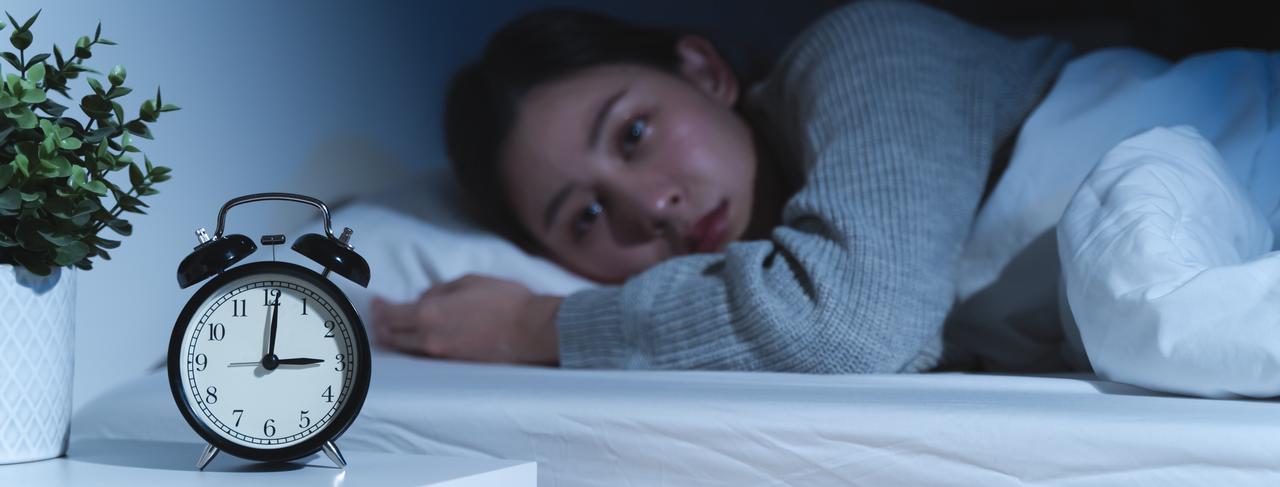
How to Overcome Sleep Difficulties

Summary:
Struggling to get a good night’s sleep? You’re not alone. From busy schedules to endless distractions, modern life makes it harder than ever to wind down. Here’s a quick guide to overcoming sleep difficulties with a few science-backed tips:
- Create a Relaxing Bedtime Routine: Signal to your body that it’s time to sleep by establishing a wind-down ritual.
- Limit Stimulants and Blue Light Exposure: Caffeine and screens can disrupt sleep cycles, so keep them to a minimum before bed.
- Focus on Mindfulness and Relaxation Techniques: Calming activities like meditation or deep breathing can reduce stress and help you relax.
Let’s dive deeper into each of these strategies and explore a few more tools that can help you reclaim a restful night’s sleep.
Why Sleep Matters: Understanding the Impact of Quality Rest
Sleep isn’t just a break from the day—it’s an essential process that allows the body and mind to recover, repair, and prepare for the next day. Poor sleep can affect everything from mood and memory to immune function and weight control. Long-term sleep difficulties, or insomnia, can take a toll on mental and physical health. But by understanding a few key principles and practices, you can overcome many of the common barriers to quality sleep.
1. Establish a Relaxing Bedtime Routine
Our bodies respond well to routines, and a calming pre-sleep ritual signals to the brain that it’s time to wind down. Creating a consistent routine can help you fall asleep faster and improve sleep quality.
Ideas for a Relaxing Routine:
- Dim the Lights: Lowering lights 30 minutes before bed stimulates melatonin production, the hormone that promotes sleep.
- Incorporate Relaxing Activities: Read a book, listen to calming music, or enjoy a warm bath. Avoid stimulating activities, like scrolling on your phone or watching intense TV shows, which can increase alertness.
- Sleep-Inducing Scents: Essential oils like lavender or chamomile can enhance relaxation. Consider using a diffuser or placing a few drops on your pillow for a gentle aromatherapy boost.
2. Limit Stimulants and Reduce Blue Light Exposure
Caffeine, alcohol, and blue light from screens are all known sleep disruptors. Consuming caffeine too late in the day or using screens before bed can interfere with your body’s natural sleep cycle, making it harder to fall asleep or stay asleep.
How to Minimize Sleep Disruptors:
- Limit Caffeine: Avoid caffeine at least 6 hours before bed, as its stimulating effects can linger, impacting sleep quality.
- Minimize Alcohol: Although alcohol may initially make you feel drowsy, it disrupts REM sleep, leaving you more likely to wake up during the night.
- Reduce Screen Time: Blue light from phones, tablets, and computers inhibits melatonin production. If you need to use screens in the evening, consider blue light-blocking glasses or using “night mode” settings.
3. Practice Mindfulness and Relaxation Techniques
Mindfulness practices and relaxation techniques can be powerful tools to help the body transition into sleep mode. Calming the mind can prevent the racing thoughts that often keep us up at night.
Mindfulness Tips for Better Sleep:
- Deep Breathing Exercises: Try the 4-7-8 breathing technique: inhale for 4 seconds, hold for 7, and exhale for 8. This activates the body’s relaxation response, preparing you for sleep.
- Progressive Muscle Relaxation: Start at your toes and work your way up, tensing and then releasing each muscle group. This reduces physical tension and promotes relaxation.
- Guided Meditation: Apps like Calm or Headspace offer sleep-focused meditations that can help quiet the mind and ease the body into a restful state.
4. Optimize Your Sleep Environment
Creating a sleep-friendly environment can make a significant difference in how well you sleep. Small adjustments to your bedroom setup can make it easier to fall asleep and stay asleep.
Key Tips for a Sleep-Optimized Bedroom:
- Keep the Room Cool: A slightly cooler room (around 65°F or 18°C) is ideal for sleep as it helps regulate body temperature, which naturally drops during the night.
- Reduce Noise: Use earplugs or a white noise machine to mask disruptive sounds.
- Make it Dark: Use blackout curtains or an eye mask to block light, which signals the brain to produce melatonin.
5. Manage Stress Throughout the Day
Stress is one of the biggest barriers to sleep. By managing stress during the day, you’re less likely to feel overwhelmed or anxious at bedtime.
Daily Stress-Relief Tips:
- Exercise Regularly: Physical activity reduces stress hormones and promotes the release of endorphins, which can improve sleep.
- Practice Time Management: Organizing your day can help prevent the feeling of being “behind,” reducing stress that can spill over into nighttime.
- Set Aside Worry Time: Allocate 10-15 minutes earlier in the evening to write down worries or plan tasks for the next day. This can help “clear the mind” before bed.
6. Limit Late-Night Eating
Eating a heavy meal right before bed can lead to indigestion, acid reflux, or an overactive digestive system—all of which make it harder to sleep. Ideally, avoid big meals within two to three hours of bedtime, and if you’re hungry, stick to a light snack.
Sleep-Friendly Snacks:
If you do need a little something, opt for foods that promote sleep, like a small banana, a handful of almonds, or a cup of herbal tea.
7. Seek Consistency with Sleep and Wake Times
Our bodies follow a natural circadian rhythm, which is regulated by consistent sleep and wake times. By going to bed and waking up at the same times each day, even on weekends, you can improve your sleep quality and fall asleep more easily over time.
Building a Consistent Sleep Schedule:
Set a bedtime and wake-up time that allows for 7-9 hours of sleep, and stick to it—even if it means skipping a late-night show or party. Consistency strengthens your body’s internal clock, helping you wake up refreshed each morning.
Final Thoughts: Better Sleep is Within Reach
Good sleep is essential for physical, mental, and emotional health. By creating a bedtime routine, managing stimulants and blue light exposure, and incorporating mindfulness techniques, you can create the conditions for a restful night’s sleep. Small changes in your evening habits can lead to big improvements in how you feel and function the next day. So, take these steps, get comfortable, and let your best sleep begin!
References:
1. Drake, C. L., et al. (2013). “Effects of caffeine on sleep quality and daytime functioning.” Sleep Medicine Reviews, 17(5), 405-414.
2. Morin, C. M., et al. (2006). “Cognitive behavioral therapy for insomnia: A randomized controlled trial and components analysis.” Psychosomatic Medicine, 68(4), 590-598.
3. Walker, M. P., & Stickgold, R. (2006). “Sleep, memory, and plasticity.” Annual Review of Psychology, 57, 139-166.
Meet Fitnexa, your AI-driven companion that turns everyday habits into a positive, uplifting journey. From effortless meal analysis (including recipe suggestions) to personalized coaching and real-time support, Fitnexa keeps you on track toward lasting wellness — so you can stay younger, live longer.
https://apple.co/4hr8JGW





Leave a comment
This site is protected by hCaptcha and the hCaptcha Privacy Policy and Terms of Service apply.